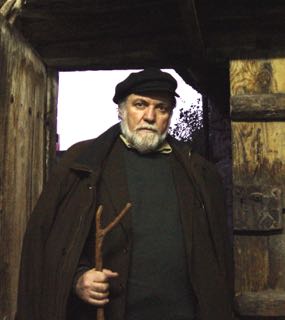Photos: Michalis Pieris' personal archive
The Bulgarian edition of selected poems by Cyprus’ poet Michalis Pieris "Metamorphoses of Cities" (ed. 'Foundation for Bulgarian Literature', series 'Aquarium Mediterranean', Sofia 2015) had its première in Nicosia. The cultural event took place on the initiative of the Embassy of Bulgaria in Cyprus. Poems from the edition were voiced in Bulgarian and Greek in the presence of the poet and his translator into the Bulgarian language Zdravka Mihaylova, being simultaneously displayed in English (from the upcoming edition of his poetry in Australia, translated by Irena Yoanidi).
Why "Metamorphosis of Cities"? Michalis Pieris has always travelled and lived in Australia and Greece. The poet says that he "enters an unfamiliar city as one descends into a well and smells scents that rise from the earth. Every city has its own smell that emanates from its monuments, shops, its people, especially its women. I wander the streets like a man who is lost, looking for landmarks, watching people and objects as if seeing their type and shape for the first time, I see the smell while moving around me, looking to find the image that always remains the same. A female deity, a fairy that is slipping into the dwelling of the city, disappearing like a wild animal in the mountains with the confidence of her beautiful shape, with the arrogance of what is well put on the city fresco."
 Born in Cyprus in 1952, Michalis Pieris is a poet, translator and university professor. He studied philology and theatre in Thessaloniki and Sydney (Australia), he has worked in universities and research centres in Greece, Europe, America and Australia. He has published short stories, theatrical works as well as research on the medieval, Renaissance and Modern Greek literature. He has published ten books of poetry, translated foreign poetry and ancient Greek drama.
Born in Cyprus in 1952, Michalis Pieris is a poet, translator and university professor. He studied philology and theatre in Thessaloniki and Sydney (Australia), he has worked in universities and research centres in Greece, Europe, America and Australia. He has published short stories, theatrical works as well as research on the medieval, Renaissance and Modern Greek literature. He has published ten books of poetry, translated foreign poetry and ancient Greek drama.
He is the founder of the Theatrical Workshop at the University of Sydney (1979) and the Theatrical Workshop at the University of Cyprus (1997), he has adapted for stage medieval and Renaissance literature works and has directed them, including the medieval "Cyprus Chronicle" by Leontios Machairas and the Renaissance masterpiece of Cretan literature "Erotokritos" by Vitsentzos Kornaros. Since 1993, he has taught poetry and theatre at the University of Cyprus.
He has been awarded many times for poetry, both in Cyprus and internationally: the International Poetry Award "Lazio Between Europe and the Mediterranean" (2009) of the Lazio region in Italy, the highest award of the Republic of Cyprus (2010) for lifetime contribution to Greek literature, the Medal of the Italian Republic (2011) for his contribution to promoting Italian culture in Cyprus and to the development of cultural relations between the two countries and much more.
GRReporter readers already had the opportunity to be acquainted with the poetic revelations "Metamorphosis of Cities" that were presented in the rubric "From the neighbour’s library." Now we present an interview with the poet conducted by the translator of his book, Zdravka Mihaylova.
Besides being a poet and university lecturer, you are in charge of a theatrical workshop at the University of Cyprus, which has staged numerous performances at the professional level, both in Cyprus and abroad. In them folk culture stands out through a modern artistic expression. Tell us more about those activities and the cultural festival of the University of Cyprus, which you organize in the old building on Axiotea Street in Nicosia.
The theatrical workshop at the University of Cyprus was established years ago and its goal is to fill important gaps in the Cypriot theatrical space, to explore areas unexplored by professional theatre such as the works of medieval and Renaissance literature of Hellenism from the periphery, i.e. those written in dialects, such as Greek, Cretan and others. These works have been constantly and diligently explored from different angles. We try to utilize elements of tradition and folk rituals, which, as you know, have centuries-old roots in Mediterranean cultures and are rich in theatrical activities. In this sense, our performances are not planned in view of a number of performances. But if we believe that there is room to explore a text more deeply, the work on it continues.
During these fifteen years, we have staged only seven works and we have constantly continued to work on them, bringing changes and improvements. Actors often change too, as some young people leave and others come in their place. Essentially it comes to working up on the same text (something like a work in progress), which gives us the feeling that we increasingly extend our knowledge in the same area. This is something unique as our literature is a real mine from which we continually dig up new diamonds (diamonds of words). The most important thing in this adventure of drawing new knowledge is that our audience (that we have created due to the quality of our work) follows and encourages us, seeing each new version, the result of a different approach to the same work. There are viewers who have attended some of our performances more than five times, naturally over the course of the fifteen years since the Theatrical Workshop has existed.
